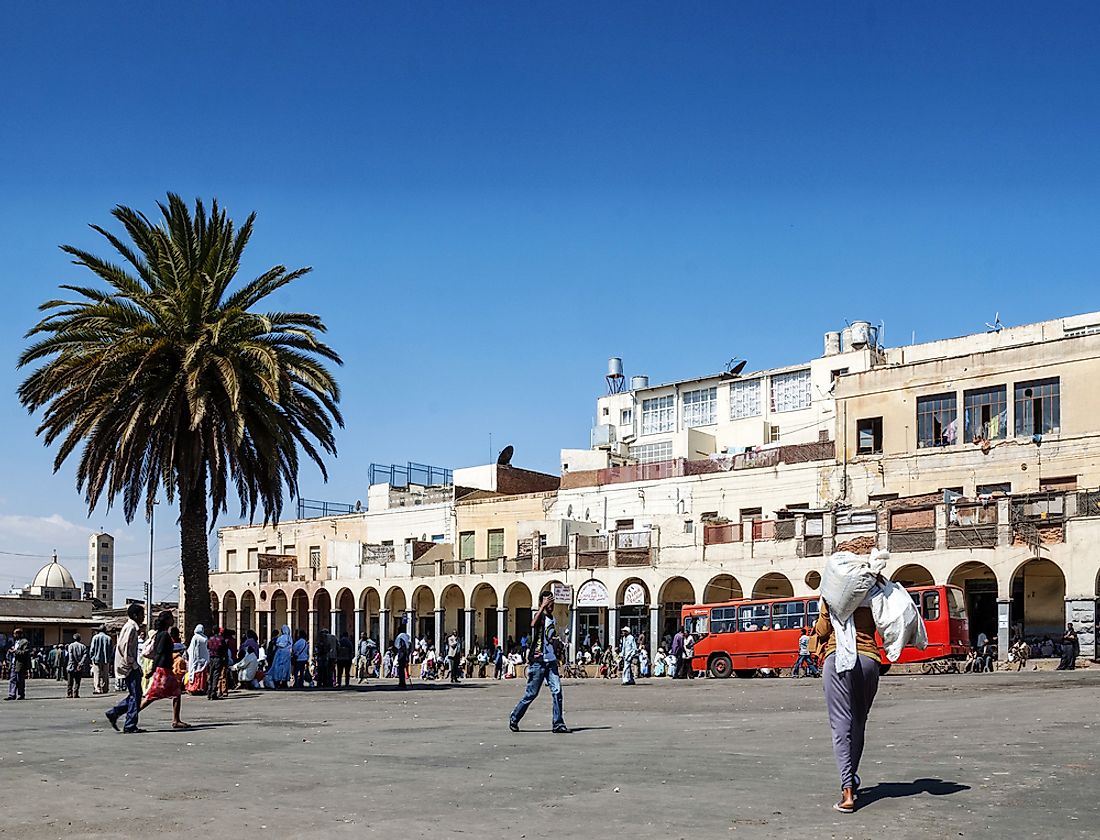Major Ethnic Groups Of Eritrea

The Biher-Tigrinya people are the largest ethnic group in Eritrea today, followed by the related Tigre people. These ethnic groups make up the majority of the population in the country, and the other seven tribes constitute 12% of the remaining total population.
Both Italy and Britain colonized Eritrea. In 1952, the United Nations federated Ethiopia and Eritrea, but Ethiopia overruled the federal arrangement and annexed Eritrea as its province. This annexation led to years of liberation wars by Eritreans. During this time all the tribes in Eritrea came together to form a formidable front that would liberate the country from the ever fighting Ethiopian ethnic groups.
Biher-Tigrinya
The Biher-Tigrinya ethnic group is the largest community in Eritrea, constituting 57% of the total population. It occupies the southern, northern, and central highlands of Maakel and Debub and practices farming. The community practices Christianity primarily the Coptic, Catholic, and Protestant branches. A small proportion of the group practices the Islam religion. They speak Tigrinya language.
Tigre
The Tigre ethnic group is the second largest population in Eritrea constituting 28% of the total population. They occupy the vast areas from the western lowlands, northern mountains, to the coastal plains of Eritrea. They are similar to the Tigrinya community sharing both Islamic and Christianity.
Saho
The ethnic minority group of Saho makes up 4% of the total population in Eritrea. The group occupies the southeastern slopes of the highlands to the coastal plains of Foro and the hinterland south of Massawa. Like their counterparts, the Tigrinya and Tiger, they also practice Islamic and Christianity and are small scale farmers with much emphasis on bee-keeping. Their culture is embodied in the community work where a village has around 200 homes that are well built and have a clean environment.
Kunama
This ethnic group forms the third largest population in Eritrea with a 3% stake. They occupy the territories between Gash River and Barentu. The ethnic group constitutes two religions, Islamic and Christianity but traditional believers are present. They live a Nilotic life with a diverse dancing lifestyle. They speak the Kunama language.
Bilen
These traditional farmers occupy the regions of Keren and its environs making up a 2% of the whole Eritrea population. They practice Christianity and Islamic religion, and their culture revolves around kinships social stratification. They have close ties with their relatives, Tigrinya.
Rashida
This Islamic ethnic group came to Eritrea from the Arabian Peninsula. They lead a nomadic life along the Northern Red Sea coast. Today they make up for just a 2% of the total population.
The Social Cohesion In Eritrea
The Tigrinya group is dominant numerically, economically and politically. Christianity is the dominant religion with the Jerbeti Muslims taking on the minority. The other minorities with an exception of the Tigre group, are small and do not form any homogeneous or influential political and cultural blocks.
Major Ethnic Groups Of Eritrea
| Rank | Ethnic Group | Share of Eritrean Population |
|---|---|---|
| 1 | Biher-Tigrinya | 57% |
| 2 | Tigre | 28% |
| 3 | Saho | 4% |
| 4 | Afar | 3% |
| 5 | Kunama | 3% |
| 6 | Bilen | 2% |
| 7 | Rashaida | 2% |











